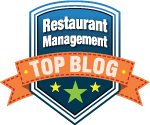
Restaurants generate an extraordinary amount of data from a number of systems. While some data stays in the system it is produced in, other pieces of data are transformed and sent to various other systems. With the growing emphasis on data-driven decision-making, restaurant companies are seeking reliable solutions to consolidate and provide access to data so everyone is on the same page. This is where a robust System of Record (SoR) comes into play. Learn the advantages of using a Data Warehouse as a Restaurant System of Record.

















.png?width=50&height=50&name=Mirus%20Logo%20(1).png)